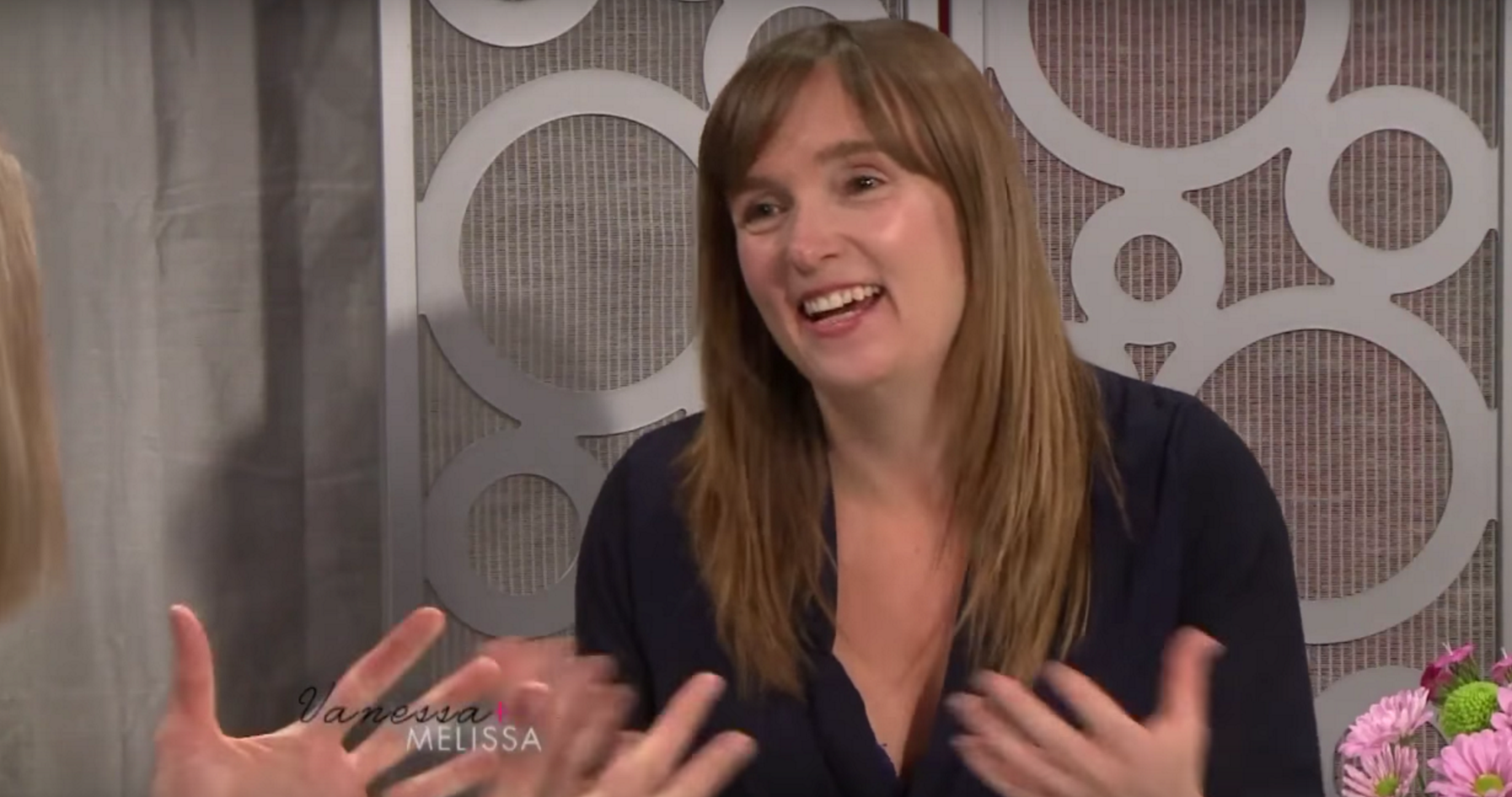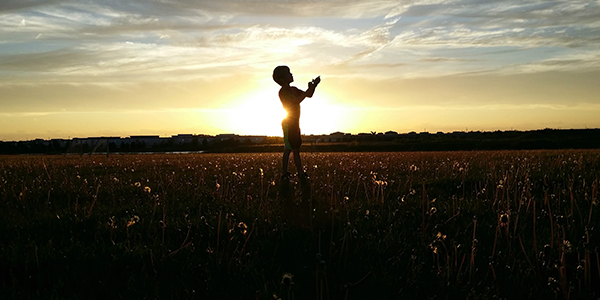
by Jen Forristal | Sep 15, 2017 | Resilience, Umbrella Intro
I am so grateful to be working with Great Big Story to share the human journey in the classroom, helping students learn by example and build a big bank of role models and stories they can draw from when they experience difficulties.
I love this one. It’s such a great example of resilience and the fact that we don’t have to be the victims of life’s rain.
Take a few minutes to share the video in the featured image above with your kids, A Shark Attack Survivor Jumps Back in the Water (click here to view). Can you see the umbrella skills he is using to weather the storm?

by Jen Forristal | Sep 15, 2017 | Umbrella Intro
Parenting is a series of conversations, each one teaching and reinforcing the way our children see the world. We have a funny saying at our house “Self-regulate or be regulated” and it’s a good one to try this week.
I love this one because it’s funny, easy to throw out as challenges arise and it resonates beautifully with kids because the power resides with them first. Our job as parents is to get our kids to the point that they don’t need us at all, that they can make good decisions for their health and happiness all on their own. Growing up therefore is a slow power transfer from you to your child.
This conversation is great because it builds your child’s autonomy and empowers then while still recognizing that their is a journey to independence and you will step in when needed to teach and guide them. It frames their good choices like a balanced diet and getting homework done as a sign of moving up the maturity scale and can make them a point of pride.

by Jen Forristal | Jan 23, 2017 | Umbrella Intro
[spb_video link=”https://www.youtube.com/watch?v=AdGVN8oMG1M” remove_related=”yes” autoplay=”no” full_width=”no” width=”1/1″ el_position=”first last”]

by Jen Forristal | Jan 10, 2017 | Umbrella Intro
[spb_text_block animation=”none” animation_delay=”0″ simplified_controls=”yes” custom_css_percentage=”no” padding_vertical=”0″ padding_horizontal=”0″ margin_vertical=”0″ custom_css=”margin-top: 0px;margin-bottom: 0px;” border_size=”0″ border_styling_global=”default” width=”1/1″ el_position=”first last”]
The secret to changing anything in our lives usually boils down to changing or forming new habits. Sounds pretty easy, however, forming new habits is challenging and can be perceived as a daunting task. I see it in my practice everyday and know that when we don’t make immediate and long lasting changes, we can be very hard on ourselves, which can slow down or even stifle progress.
 Here’s a great trick for change that lasts. Before you begin a new change, frame it in your brain as an ongoing process and not something you can succeed or fail at. Give yourself credit for the journey and remember that change is like acquiring any new skill, it won’t happen overnight. It takes time and should not be measured as a success or a failure, but growth and progress in the right direction. Feeling ready to make a change or create a new habit?
Here’s a great trick for change that lasts. Before you begin a new change, frame it in your brain as an ongoing process and not something you can succeed or fail at. Give yourself credit for the journey and remember that change is like acquiring any new skill, it won’t happen overnight. It takes time and should not be measured as a success or a failure, but growth and progress in the right direction. Feeling ready to make a change or create a new habit?
Follow This Easy Approach:
- Start by choosing one new habit you would like to establish.
- Create a plan to accomplish this goal for 3 days.
- At the end of the 3 days, schedule a few minutes to reflect on how it went and modify your plan as needed to achieve better ease or happiness in accomplishing the task.
- Now try another 3 days with your modified plan, then stop, reflect and modify the plan again as needed.
- Continue this process until the new habit feels like a happy, natural part of your day.
You see, the secret is quite simple. It takes a change in how you see the task. Simply looking at change in bite-sized chunks is a great way to avoid becoming overwhelmed or giving up and allows you to find joy in the process and progress.
If you have any questions or would like some help sticking to your goals, send me a message or leave a comment below!
Be healthy. Be happy.
[/spb_text_block]

by Jen Forristal | Nov 8, 2016 | Umbrella Intro
[spb_text_block animation=”none” animation_delay=”0″ simplified_controls=”yes” custom_css_percentage=”no” padding_vertical=”0″ padding_horizontal=”0″ margin_vertical=”0″ custom_css=”margin-top: 0px;margin-bottom: 0px;” border_size=”0″ border_styling_global=”default” width=”1/1″ el_position=”first last”]
Praise is such a natural part of parenting. It provides our children with positive reinforcement and should be given freely. But parental praise comes with one big caveat…be careful what you praise them for. Our words tell children how to think about themselves and with best intentions when we say things like, “Great job, you scored so many goals. You’re a natural!” we send our child the message that trying hard means you aren’t as talented and that success should come easily. Instead we should aim to praise our children for their effort, not their talent.
Research shows that children praised for outcome will choose easier tasks to prove they are smart or talented and gain our approval. Praising children for effort on the other hand, is what leads them to choose harder tasks because they know we value effort.
To understand why this happens we first need to understand some ground breaking research out of Stanford University identifying two different mindsets: fixed mindset and growth mindset.
In a fixed mindset we believe that our intelligence and talent are something we are born with and can’t really change. This leads us to the false assumption that talent alone, without hard work, will lead to success. Extensive research has shown that children with this mindset give up easily and often avoid challenges.
In a growth mindset, on the other hand, we see ourselves as growing and developing. We believe we can build any skill with effort and this can help us create a love of learning and an excitement around new challenges. We see the brain like a muscle, the more effort we put in, the bigger it grows. As a result, children with a growth mindset ultimately reach higher levels of success.
So the next time you want to encourage your child give praise freely for these growth mindset builders:
Things accomplished through practice, studying, good strategies, perseverance, and concentration.
For choosing challenging projects.
For trying different strategies.
For improvement.
For passion.
When your child does something very quickly and easily, recognize that the task didn’t challenge them and say “Sorry about that. I guess that was too easy. Next time let’s choose something that will really help you grow.”
Try to avoid praise that judges their intellect, talent and speed rather than effort. Praising these qualities unintentionally has an adverse effect when our child faces difficult tasks, as it can create a fear of failure, increased procrastination and cause our children to quit when things get difficult.
The first year my son played soccer he was a natural, leading the pack in goals scored and bursting with pride at his accomplishments. Wanting to encourage his love of the game I praised him for his successes. But at start of next season when, pitted against an older age group, he was no longer the star player I became the mom who had to repeatedly venture out onto the field to pick up my sobbing little boy.
By praising the outcome of his hard work and passion instead of the hard work and passion itself I had created a child who wanted to give up when things got hard. Lesson learned! With a few quick changes in the words I use, I once again have a child who adores soccer but this time he’s ok when the game doesn’t go his way. I recently heard another parent praising him for his skills and he politely pointed out that it was because he was working very hard. A true moment of parenting pride.
If you have any questions regarding these concepts or more ideas to practice them, reach out at any time.
[/spb_text_block]



![[Infographic] A Guide to Umbrella Parenting: Helping Your Children Thrive in all of Life’s Weather](https://umbrellaproject.co/wp-content/uploads/2017/09/INTROVERSION_updated.png)



